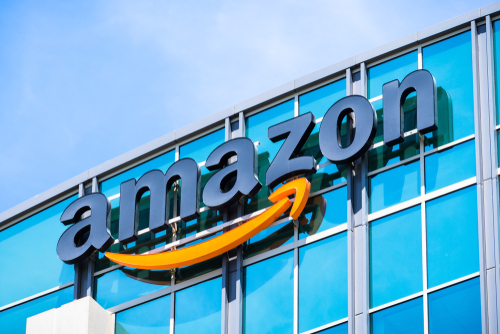Global tech giants Amazon, Google and Facebook face new digital services tax from Budget
Philip Hammond announces a new tax on digital services that will apply to global tech companies with revenues of over £500m a year
Philip Hammond announces a new tax on digital services that will apply to global tech companies with revenues of over £500m a year

In today’s Budget 2018, chancellor Phillip Hammond announced a new digital services tax on globally dominant tech giants like Amazon, Google, and Facebook.
These businesses will face a two percent tax on their UK revenues, placing the UK ahead of international bodies such as the OECD but following decisions by nations such as Italy and Spain.
The tax will only apply to technology companies that are profitable and boast global revenues of over £500m a year. This means Amazon, Google, and Facebook are likely candidates.
Hammond promised the new tax was “carefully designed to ensure that it is established tech giants, rather than our tech start-ups, that shoulder the burden”.
He added: “We will ensure we get it right so UK remains best place to start and scale a tech business.”
The new digital services tax will come in in April 2020 and is predicted to raise over £400m a year.
The chancellor pointed out this is not necessarily a permanent measure. He has promised to work with the OECD and G20 as they come up with a global solution to ensure these companies “pay their fair share”.
Stating the reasoning behind his announcement, Hammond said that “too much power is being concentrated in too few global technology businesses”.
Accountancy Age reached out to the industry to find out what they thought about the new digital services tax.
Wendy Nicholls, tax partner at Grant Thornton, said: “The UK has to tread a fine line between being seen to be tough on multinationals and showing it is open for business, particularly as we prepare for a post-Brexit economy. One of the reasons that innovative businesses are attracted here is the combination of a stable tax regime and an even-handed approach. The UK has rightly prided itself on being at the forefront of international efforts by the OECD and G20 to tackle base Erosion and Profit Shifting (BEPS).
Richard Asquith, VP Indirect Tax at Avalara, pointed to the practical difficulties with a digital services tax: “Inevitably with the endless headlines of major US digital giants making minuscule taxable profits on huge sales, the chancellor wants to be seen to act. The lack of progress at the EU level is shown by Spain launching a similar proposal last week – but for 3%.
“But a DST will be difficult to implement practically. In taxing turnover instead of profits, it’s economically uncompetitive. It would also require heavy and intrusive data reporting and measurement – it’s not clear if that would get past the new EU GDPR data protection rules. But the bigger risk is retaliation from the US which could use tariffs or similar taxes on UK businesses to greater effect.”
For Frank Haskew, head of tax at ICAEW, the chancellor’s announcement is a good start but does not go far enough.
He said: “The proposed new tax on digital services can only work in the short term; we need a longer term solution. It is good to see the chancellor addressing the potential for the tax to negatively affect start-up technology companies by targeting global firms with annual revenue over £500m.
“However, there also needs to be some serious consideration to address the big firms’ threats to withdraw investment following Brexit and as a result of the tax – this will be a tough balancing act.”
Chris Denning, head of international and corporation tax at MHA MacIntyre Hudson sheds light on possible retaliation from the US government.
Denning explained: “This tax is clearly aimed directly at US technology companies. When the news sinks in across the pond it could raise the possibility of retaliatory measures from the US government. Dragging the UK into an acrimonious quarrel with one of its largest trading partners is perhaps not what the Chancellor intends.
“The other side of the argument is that the UK will be seen as leading the way, as with previous measures such as the diverted profits tax and the hybrid mismatch rules. Once the UK introduces the tax it is may be thought inevitable that other territories will follow. So any non-levelling of the playing field this may create from UK’s perspective will be hopefully short lived.”
Tony Spillett, tax partner and head of the technology sector at BDO, concluded: “The introduction of a digital services tax will be welcomed by many but will only impact a few.
“It is in fact forecast to raise very little – only £0.5bn when fully operational. There are also concerns that taking such unilateral action could disadvantage the UK’s future competitiveness by failing to respect the way in which global tech is a force for good, not least in how these firms support, invest and spin off many great businesses in the UK.
“I hope a global agreement is well developed by 2020 and supersedes Hammond’s current plans. The UK has been pivotal in international negotiations to create a new global tax framework and we should continue to co-operate with the OECD to design and implement the lowest, simplest and flattest possible corporate tax system that addresses the issues and finds a solution that works for the long term.”